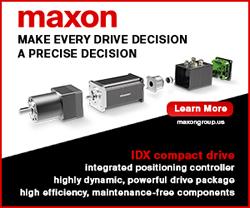Universal Robots Maintains Top Spot in ABI Research’s Ranking of Cobot Companies in Industrial Applications; Doosan, Techman Robot and Precise Automation are Closing In
In its new Industrial Collaborative Robots Competitive Assessment, global tech market advisory firm, ABI Research finds Universal Robots (UR) to be the clear forerunner, particularly in implementation.
There are well over 50 manufacturers of collaborative robots (cobots) worldwide, but only a handful of these companies have so far deployed cobots on any meaningful level of scale. Tens of thousands of cobots have been sold as of 2019 and earned US$500 million in annual revenue for world markets. In its new Industrial Collaborative Robots Competitive Assessment, global tech market advisory firm, ABI Research finds Universal Robots (UR) to be the clear forerunner, particularly in implementation.
The Industrial Collaborative Robots Competitive Assessment analyzed and ranked 12 collaborative robot vendors in the industry - ABB, Aubo Robotics, Automata, Doosan Robotics, FANUC, Franka Emika, Kuka AG, Precise Automation, Productive Robotics, Techman Robot, Universal Robots, and Yaskawa Motoman - using ABI Research's proven, unbiased innovation/implementation criteria framework. For this competitive assessment, innovation criteria included payload, software, Ergonomics and human-machine interaction, experimentation and safety; implementation criteria focused on units and revenue, cost and ROI, partnerships, value-added services, and the number of employees.
"Market leaders in cobots generally have well-developed cobot rosters, in many cases backed up by an ecosystem platform that integrates applications, accessories, and end-of-arm-tooling (EOAT) solutions in with the base hardware," said Rian Whitton, Senior Analyst at ABI Research. With 37,000 cobots sold so far, UR leads, followed by Taiwanese provider Techman with 10,000, and Korea-based Doosan with over 2,000. Precise Automation, which uses an advanced direct drive solution to develop faster collaborative robots, was cited as the most innovative of the 12 providers, just edging out Universal Robots, who claimed the overall top spot due to their significant lead in implementation.
There are several companies that are too young to be challenging the dominant parties in the cobot market but are developing new and disruptive technologies that will allow them rise to prominence in the years to come. Productive Robotics is a case-in-point. The California-based developer has an arm with inbuilt vision, 7 axes for superior flexibility, long reach, and a very affordable price point, but has yet to deploy at scale. Automata, a British company that develops a ‘desk-top' cobot costing less than US$7,000, is significantly lowering the barriers to entry for smaller actors and is championing the use of open-source middleware like ROS to program cobots for industrial use-cases. Germany-based Franka Emika and Chinese-American provider Aubo Robotics also represent relatively new entrants to the market who are building on the success of Universal Robots and are beginning to compete with them.
Perhaps surprisingly, while the major industrial robotics providers have developed cobot lines, they have generally been less successful in marketing them or gaining market traction relative to the pure-cobot developers. In part, this is down to focus. While collaborative robots are valuable, they generally suit deployments and use-cases with smaller shipments and a wider variety of small and large end-users. For industrial players like ABB, FANUC, KUKA AG and Yaskawa Motoman, their client-base tends to be large industrial players who buy fixed automation solution through bulk orders. Aside from this, all four of these companies are competing extensively for greater shipment figures in China, where the cobot oppurtunity relative to the market for traditional industrial systems is much less apparent than in Europe or North America. "Though many of the cobots deployed by these companies are impressive, and they have a lot of software services, the high-cost and lack of easy use among their systems largely defeat the current value proposition of cobots, making them the laggards in this competitive assessment." says Whitton.
Looking forward, the larger industrial players are likely to improve their relative position, as future growth in cobots rests on scaling up and large deployments. "Universal Robots, though likely to remain the market leader for the foreseeable future, will be increasingly competing on an even footing with near-peer cobot developers, who are already developing second-generation cobots with significant hardware improvements. Meanwhile, some more innovative companies will be able to accelerate adoption through price decreases, improved flexibility, and common platforms to retrofit collaborative capability on industrial robots," Whitton concluded.
These findings are from ABI Research's Industrial Collaborative Robots Competitive Assessment report. This report is part of the company's Industrial Solution, which includes research, data, and analyst insights. Competitive Assessment reports offer comprehensive analysis of implementation strategies and innovation, coupled with market share analysis, to offer unparalleled insight into a company's performance and standing in comparison to its competitors.
About ABI Research
ABI Research provides strategic guidance to visionaries, delivering actionable intelligence on the transformative technologies that are dramatically reshaping industries, economies, and workforces across the world. ABI Research's global team of analysts publish groundbreaking studies often years ahead of other technology advisory firms, empowering our clients to stay ahead of their markets and their competitors.
Featured Product

